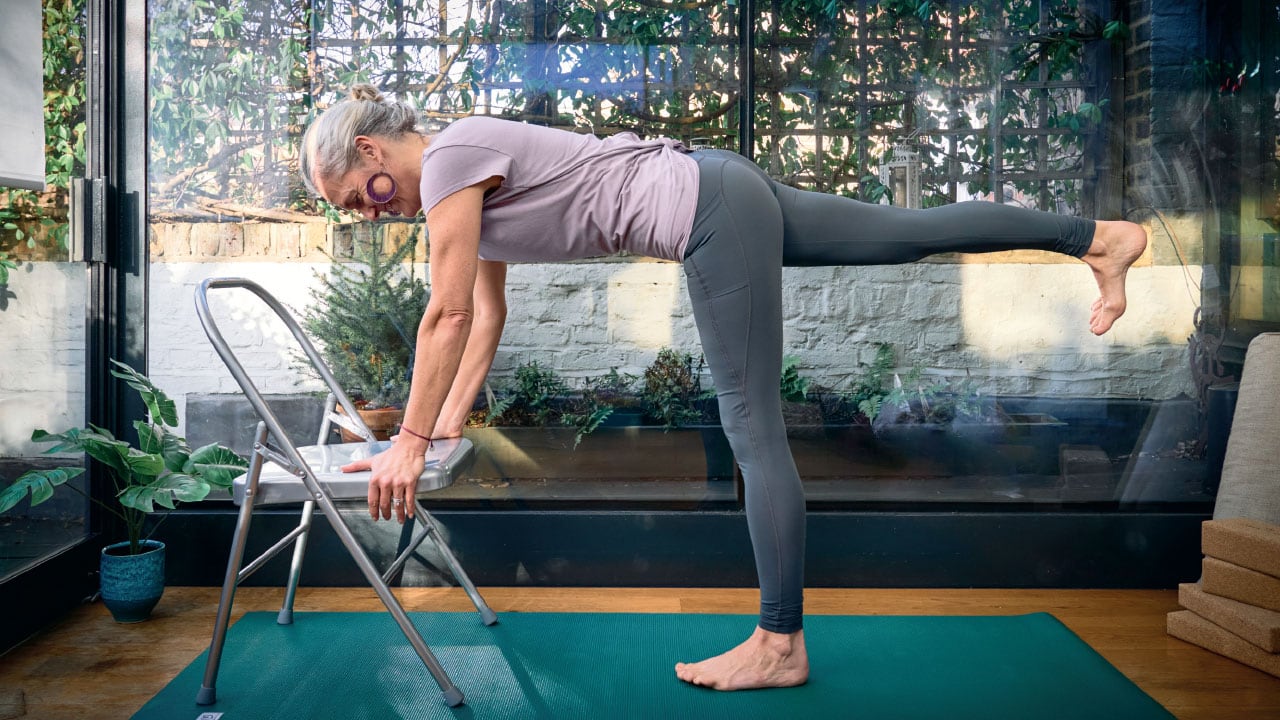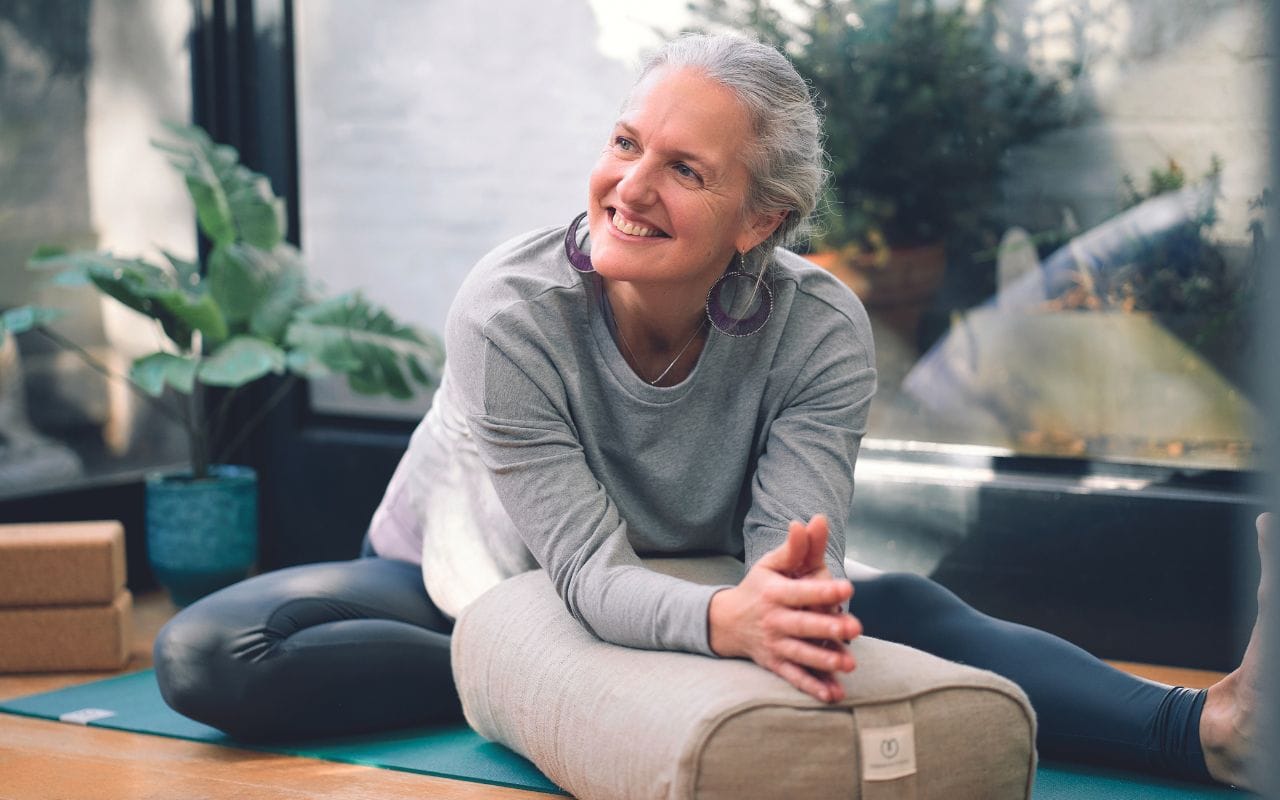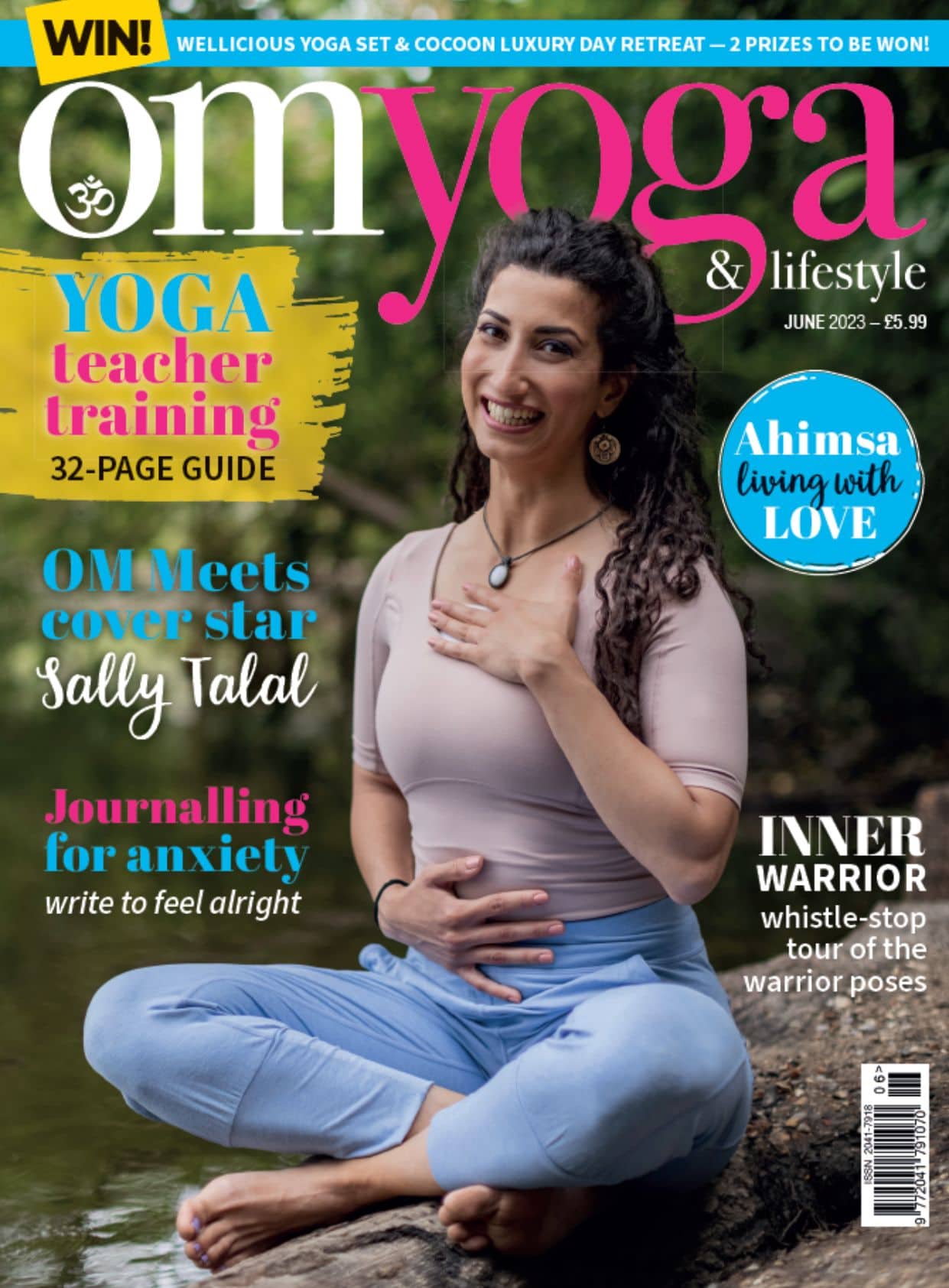
Time to repair
How just five minutes of yoga a day can help body and mind repair, recover and recuperate. By Vicky Fox
Reading time: 6 minutes
In the last 15 years since I trained to be a yoga teacher, I have always found time for yoga. But to make that statement, I have had to drop my harsh judgement on how I define a 'yoga practice' and what I regard as the correct amount of time required for this.
Have I always practiced a 90-minute class with asana, mudras, mantras and meditation? No, I definitely haven't. But when I stop labelling my practice of yoga as a timed achievement, including a certain balance of asana and meditation, I can honestly say I practice yoga every day. Because yoga is a practice, not an achievement, something I come back to day after day; it is something to receive rather than achieve.
The first limb of yoga is ahimsa, meaning non-harming, or the absence of violence, and this is an integral part of the ancient spiritual teachings of the Vedas. The practice of kindness is ahimsa and therefore when we are being kind we are practicing yoga. I try, and fail, every day to be kind. Kind in the way I speak to myself and how I judge myself; I fail as the critic inside my head (called 'Vicky') is often unkind towards me. She judges me as lazy for not having achieved the things in my day that I would like to have achieved and she often queries my ability to be a yoga teacher when I don't have the correct number of hours in my day for my own practice. I grew up with 'more is more', so it is hard for me to practice 'less' and to believe that this is actually 'more'. However, I have to keep coming back to yoga equals kindness...and if I am practicing kindness to myself and others, then I am practicing yoga and so this is what I work on, on a daily basis.
The pressure of time is something that I regularly hear from students in class. With a sense of apology, people explain how they didn't have time to practice yoga. So, what happens if we set the bar low and create smaller, more achievable goals, especially when coming back or starting yoga after a period of bed rest or inactivity due to illness.
I always ask my students: "How much time can you give to a yoga practice?" That's because I have experienced the full benefit of shorter asana and meditation practices on days when I am time constrained and still felt the benefits of greater connection to myself; I always feel better than I did when I started my practice.
This is key – feeling better than you did before you started your practice. So, I tell people you don't need to feel good to come to class or practice yoga, but you will feel better after. And, as long as I have time to consciously connect to my breathing and move my body, whilst observing my judgmental mind and coming back to my breath, then I feel I am 'doing yoga'.
The benefit of practicing yoga, consciously breathing and moving, is that the breathing signals to the nervous system that your body is in a safe place to start to repair, nourish and nurture itself. This is why I wanted to share with people how we all have time to repair if we start small. Start with five minutes a day and see what happens. If I sit and breathe consciously for five minutes I know that although I will not be able to change my surroundings and whatever is being thrown at me that day, I will feel calmer, less reactive and therefore more able to cope with my day. This just feels like such a huge gift and something I would really like to share.
When I wrote my book 'Yoga for Cancer' I wanted to share my experience of how yoga can help address some of the side effects of treatment for cancer; the things I have learnt in my decade of teaching classes for anyone impacted by cancer. When I finished the book I felt I had so much more to share on how yoga can be a great tool for helping our bodies repair on many levels – the physical, the mental, the energetic levels. And that when we do, we can connect more deeply to our intuitive body, that bit inside us that knows the answers, which we might need to tap into when moving from being a patient to becoming a co-crafter of our own wellbeing.
I wanted to take the pressure off feeling that a yoga practice had to be 60 or 90 minutes long. If you are recovering from surgery or treatment for cancer you might not have the energy levels or time to practice for long periods. We lose strength and lean body mass quickly when we have periods of bed rest and therefore fatigue is a common side effect.
So, we need to start small, building a practice incrementally, and five minutes at a time is a great place to start.
Yoga is not just the physical practice of asana; it is very much a 'workout' for our mind. Our mind, where we process our experiences, uses up a lot of energy when we are stuck in the past wishing something wasn't happening to us or projecting fearfully into the future, worrying about things that might never happen. Mudras, mantras, meditation and breathing techniques can help us focus our mental energy, which means we have more energy for living in this moment right now as our mind isn't so scattered or dissipated. This is challenging because our mind's main focus is survival and when we experience anxiety, fear and stress we can find that our mind repeats old patterns of behaviour in response to stressful events.
By starting with five minute baby steps we can create a regular practice of yoga to create a routine. Routine is key, as Michael Brown says in 'The Presence Process': "Routine becomes what the structure of the word reveals, our route in".
By repeating small practices we start to sense the familiar feeling of peace or the feeling of being less reactive to the challenges we are facing. Building positive habits, five minutes at a time, creates new patterns of behaviour that are empowering, kind, peaceful and put the body in the best place for repairing.
Vicky Fox is the author of Time to Repair: How Yoga Can Restore Body And Mind In 5 Minutes A Day
(Hammersmith Books). Photos: yogamatters.com



